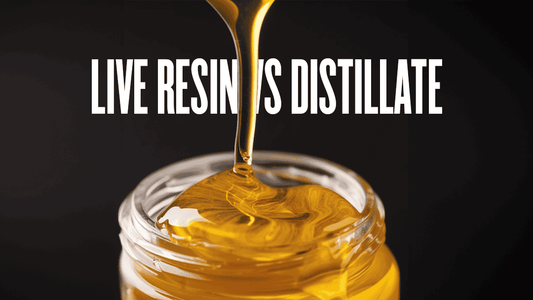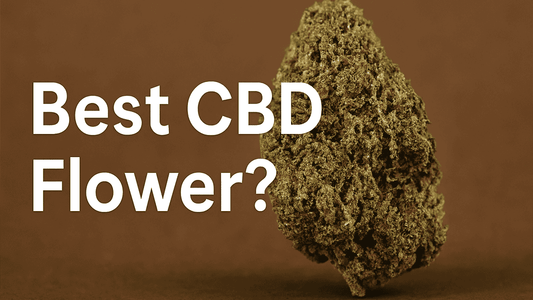On the one hand, proponents of marijuana argue that it has several potential health benefits, including pain relief, improved sleep, and the potential to reduce anxiety and depression. Some studies have even suggested that marijuana could have anti-inflammatory and antioxidant effects, which could make it helpful for conditions like arthritis and multiple sclerosis.
However, there are also several potential downsides to using weed. Smoking marijuana can harm your lungs, especially if you're heavy. Cannabis smoke contains many of the same toxins and carcinogens as tobacco smoke and can lead to chronic bronchitis and other respiratory problems. Additionally, marijuana can impair your driving ability, increasing the risk of car accidents.
But perhaps the biggest concern about marijuana is that it can be addictive. While it's not as addictive as some other substances, around 9% of people who use marijuana will develop an addiction, according to the National Institute on Drug Abuse. And for those who do become addicted, quitting can be difficult, with withdrawal symptoms including irritability, anxiety, and difficulty sleeping.
Benefits Of Weed

Weed has been shown to reduce pain effectively, making it a valuable treatment for arthritis, multiple sclerosis, and cancer. In addition, several studies have found that marijuana can be even more effective at relieving chronic pain than some prescription painkillers, with fewer side effects.
In addition to its pain-relieving properties, weed has also improved sleep. Many people find that marijuana helps them fall asleep faster and stay asleep longer, making it a helpful treatment for insomnia. And for those who struggle with anxiety and depression, marijuana may also be beneficial, with some studies suggesting that it can have a calming effect and improve mood.
But the potential benefits of marijuana don't stop there. Some studies have also suggested that marijuana may have anti-inflammatory and antioxidant effects, which could make it helpful for conditions like Crohn's disease and Parkinson's disease. And with more and more research being done on the potential medical uses of marijuana, we'll likely continue to learn about the many ways in which weed can be helpful.
Negatives Of Weed

1. Lungs
One of the most significant risks of smoking marijuana is that it can lead to chronic bronchitis, a condition characterized by inflammation of the bronchial tubes. Symptoms of chronic bronchitis include persistent coughing, phlegm production, and shortness of breath, which can be a particularly unpleasant condition to live with.
But chronic bronchitis isn't the only lung problem associated with marijuana use. Cannabis smoke contains many of the same toxins and carcinogens as tobacco smoke, which can also increase the risk of lung cancer. While the evidence about the link between marijuana and lung cancer is still somewhat limited, some studies have suggested that marijuana smoke could be even more carcinogenic than tobacco smoke, particularly for heavy users.
So, is marijuana entirely off the table if you're concerned about your lungs? Not necessarily. While smoking marijuana does carry risks, there are other ways to consume cannabis that may be less harmful to your respiratory system. For example, vaporizing marijuana or consuming it in edible form could reduce lung damage risk.
2. Addiction
While it's true that marijuana is generally considered less addictive than other substances, there's no denying that it can be addictive for some people.
According to the National Institute on Drug Abuse, around 9% of people who use marijuana will develop an addiction. And for those who do become addicted, quitting can be difficult, with withdrawal symptoms including irritability, anxiety, and difficulty sleeping.
But marijuana addiction isn't just about physical dependence. For many people, marijuana can also become a psychological crutch, something they turn to cope with stress or other negative emotions. And when marijuana becomes a person's primary way of dealing with life's challenges, it can be difficult to break the habit, even if they want to.
So, is marijuana entirely off the table if you're concerned about addiction? Not necessarily. While there is a risk of addiction to marijuana use, it's generally considered to be lower than the risk associated with substances like opioids or alcohol. However, it's essential to be aware of the potential for addiction, especially if you have a family history of substance abuse or are already struggling with mental health issues.
How Is CBD Compared To THC?

While both CBD (cannabidiol) and THC (tetrahydrocannabinol) are found in marijuana, they have very different effects on the body, and the risks associated with each can vary significantly.
First, let's talk about THC. THC is the psychoactive compound in marijuana responsible for the "high" users experience. When consumed, THC can produce a range of effects, including altered judgment and coordination, changes in mood and perception, and an increased risk of anxiety and paranoia. These effects can be hazardous for inexperienced users or those driving or operating heavy machinery, as THC can impair judgment and coordination.
But while THC can be risky, CBD is generally considered much safer. CBD is a non-psychoactive compound found in marijuana, meaning it doesn't produce the "high" that THC does. Instead, CBD is believed to have several potential health benefits, including reducing pain and inflammation and improving sleep. So while some risks are still associated with CBD, they are generally lower than those associated with THC.
The Importance Of Always Using CBD If Using THC

Experts argue that to experience the potential health benefits of CBD truly, it should be consumed with THC (tetrahydrocannabinol), the psychoactive compound found in marijuana.
The idea behind this is that CBD and THC work together in a phenomenon known as the "entourage effect." This means that when CBD and THC are consumed together, they can produce a more significant therapeutic effect than either compound. For example, some studies have found that CBD and THC can be more effective at reducing pain when used together than either compound alone.
But the potential benefits of the entourage effect don't stop there. Some experts believe that the combination of CBD and THC could also be more effective at reducing anxiety and improving sleep and could have several other potential health benefits.
Of course, this doesn't mean you have to get high to experience CBD's potential health benefits. Many CBD products on the market contain very low levels of THC, which means you can still experience the potential benefits of the entourage effect without getting stoned.
But if you decide to use a product containing both CBD and THC, you must be aware of the potential risks. THC is psychoactive, which means that it can impair judgment and coordination, and it can also increase the risk of anxiety and paranoia. So if you choose to use a product that contains both CBD and THC, it's essential to use it responsibly and be aware of the potential risks.
Conclusion
In conclusion, the question of whether or not weed is bad for you is a complex one with no easy answers. While evidence suggests that marijuana can have several potential health benefits, including pain relief and improved sleep, it's also important to be aware of the potential risks. For example, smoking marijuana can harm your lungs, and marijuana can be addictive for some people. Additionally, marijuana can impair your ability to drive and can have negative impacts on your mental health.
Ultimately, the decision of whether or not to use marijuana is a personal one, and it's essential to weigh the potential risks and benefits for yourself. However, if you do decide to use marijuana, it's necessary to do so responsibly and to be aware of the potential risks. Remember, moderation is vital, and it's essential to be mindful of the impact that marijuana might have on your life.

 4.6 Rating. Excellent.
4.6 Rating. Excellent.




